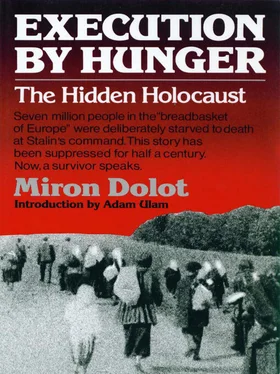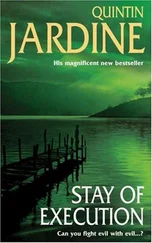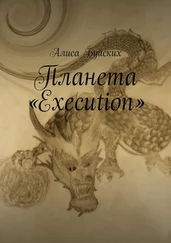It was already dark when we heard the clattering of keys and then the voice of a militiaman calling the names of those who had received food from home. Only then did I realize another tragic aspect of prison life.
When I had spoken of being hungry, I was told by my fellow prisoners that there wasn’t any chance of getting food unless somebody brought it from home. I was also informed that there was no regulation with regard to food or other comforts of the prisoners. The food and the sleeping commodities were the concern of the prisoners themselves. If someone had a family, he had the hope that he would receive his daily meal; but those who were alone were left at the mercy of their fellow prisoners. It was a time of famine in the village. The only food available to the villagers, and thus to the prisoners, was vegetables and fruit.
When the militiaman finished calling out names, and locked the door, leaving the cell in darkness, I could sense that not all the inmates had received their supper. I didn’t receive mine, but I did not expect it, for I knew that my mother had not yet heard of my imprisonment.
Fortunately, I was not in the jail long. Sometime after midnight, I was awakened, and ordered to leave the jail. My mother was waiting for me outside. On the way home, she told me that when I failed to appear at home after sundown, she had become alarmed and decided to search for me. She found my whereabouts easily, but it wasn’t that easy to find Comrade Mayevsky, who had ordered my arrest. She finally found him in the company of a young woman, and asked for my release. He refused to listen to her, constantly repeating that there was no difference between a minor and an adult “enemy of the people.” But, after my mother’s persistence, he finally agreed to write a note to the village militia authorizing my release. Mother thought he had done it only to show his mistress the power he had in the village.
I told Mother about the murder of Vasylyk and, after some discussion, we decided that early the next morning, my brother and I would look for his body and bury it properly.
It was extremely dangerous for us to do this. Vasylyk had been the son of a kurkul, and the political atmosphere was such that anyone who associated with people of this group was treated like a kurkul himself.
But Mother disregarded the danger for us all. Vasylyk had to be buried in a decent way, no matter what might happen to us.
Long before daylight, Mother awakened us and gave us her final instructions. And, as we were about to leave the house, she placed a piece of paper in my pocket. She told me that it was a prayer, and that I was to read it over Vasylyk’s grave after burying him. She warned me that I had to destroy it as soon as I had read it, for it was a dangerous piece of evidence. Then she kissed us and we left the house on our sad mission.
As we approached the place where Vasylyk had died, a beautiful day dawned. The eastern horizon became red, and the sun emerged like a huge ball of fire. The wheat fields were silent, except for the morning song of the quails.
It did not take us long to find his body. It was lying not far from the road in the midst of the tall wheat. The ground around him was stained with blood, and flies, ants, and other insects were swarming on and around his body. We immediately started digging. It was a difficult job for two young and hungry boys to dig a grave in the hard ground, but we finally managed to do it. We dug the grave slantwise, so we could roll the corpse into it with a minimum of effort. On the bottom of the grave we spread some straw. Then we wrapped the body in a blanket we had brought from home, and slid it into the hole in the ground. We quickly covered the body and hole with earth; made a cross from wooden strips Mother had provided; read the prayer she had given me; and then, after destroying the piece of paper, wended our way back home with heavy hearts.
THE YEAR 1932 witnessed the last battle of collectivization: the battle for bread, or to be more specific, for the crop of 1932. On the one side was the Communist government; on the other, the starving farmers. The government forces resorted to any means in getting as many agricultural products from the countryside as possible, without regard to the consequences. The farmers, already on the verge of starvation, desperately tried to keep what food they had left, and, in spite of government efforts to the contrary, tried to stay alive.
It may be of help to the reader to remember that up to the end of 1931, the Communists fought their war against the farmers under the guise of fighting against “the kurkuls as a social class.” But by 1932, the situation had already changed: the so-called kurkuls had already been physically liquidated, and collectivization had been completed except for a small number of farmers who were still clinging to their freedom. Thus, the battle now was fought between the Communist forces and the collective farmers; the Collectivization Campaign now changed into the Grain Collection Campaign.
The long and cold winter of 1931–1932 was slowly giving way to spring. By April, the snow had already melted away, and the weather became damp and drizzly. Often a heavy fog would descend upon our village, as if attempting to cover and hide the misery of our existence. Then cold winds would chase away the fog and bring cold torrential rains in their place.
Around this time the plight of the villagers became desperate. This was the memorable spring of 1932 when the famine broke out, and the first deaths from hunger began to occur. I remember the endless procession of beggars on roads and paths, going from house to house. They were in different stages of starvation, dirty and ragged. With outstretched hands, they begged for food, any food: a potato, a beet, or at least a kernel of corn. Those were the first victims of starvation: destitute men and women; poor widows and orphaned children who had no chance of surviving the terrible ordeal.
Some starving farmers still tried to earn their food by doing chores in or outside the village. One could see these sullen, emaciated men walking from house to house with an ax, or a shovel, in search of work. Perhaps someone might hire them to dig up the garden, or chop some firewood. They would do it for a couple of potatoes. But not many of us had a couple of potatoes to spare.
Crowds of starving wretches could be seen scattered all over the potato fields. They were looking for potatoes left over from last year’s harvest. No matter what shape the potatoes were in, whether frozen or rotten, they were still edible. Others were roaming the forest in search of food; the riverbanks were crowded too; there was much new greenery around: young shoots of reed or other river plants. One might catch something, anything, in the water to eat.
But the majority of those who looked for help would go to the cities as they used to do before. It was always easier to find some work there, either gardening, cleaning backyards, or sweeping streets. But now, times had changed. It was illegal to hire farmers for any work. The purpose of the prohibition was twofold: it was done not only to stop the flow of labor from the collective farms, but also, and primarily, to prevent the farmers from receiving food rations in the cities.
There were some villagers who saw their salvation in the cities’ marketplaces. There they brought for sale their best clothes, from prerevolutionary times, their family heirlooms, handicrafts, women’s jewelry which had been passed on from generation to generation, homemade shirts, towels, tablecloths—all embroidered with traditional Ukrainian designs—handwoven Ukrainian rugs, and other valuables. These they sold for next to nothing, or bartered them for something edible. But many of the hungry villagers didn’t go to the marketplaces with the intention of selling or bartering something; they had nothing to sell, and no money to buy anything. These public places were their last resort for finding some food. They became permanent residents there. I saw many such villagers when I went there occasionally for my mother. They wandered in the midst of the market crowds with outstretched hands, with tearful eyes, begging passers-by not to let them die. But most of the time the city dwellers would hurry past them, with eyes downcast, as if afraid or ashamed to even look at them. Soon, these starving beggars became such an everyday sight that the city people became used to them, and no longer paid any attention to them. The rejected hungry multitudes turned to scavenging. They would go over garbage and trash, taking anything that had been discarded: corncobs, apple cores, fruit peelings, even bones. At night, the hungry and starving slept right in the marketplaces under tables and benches, in bushes, or backyards.
Читать дальше












